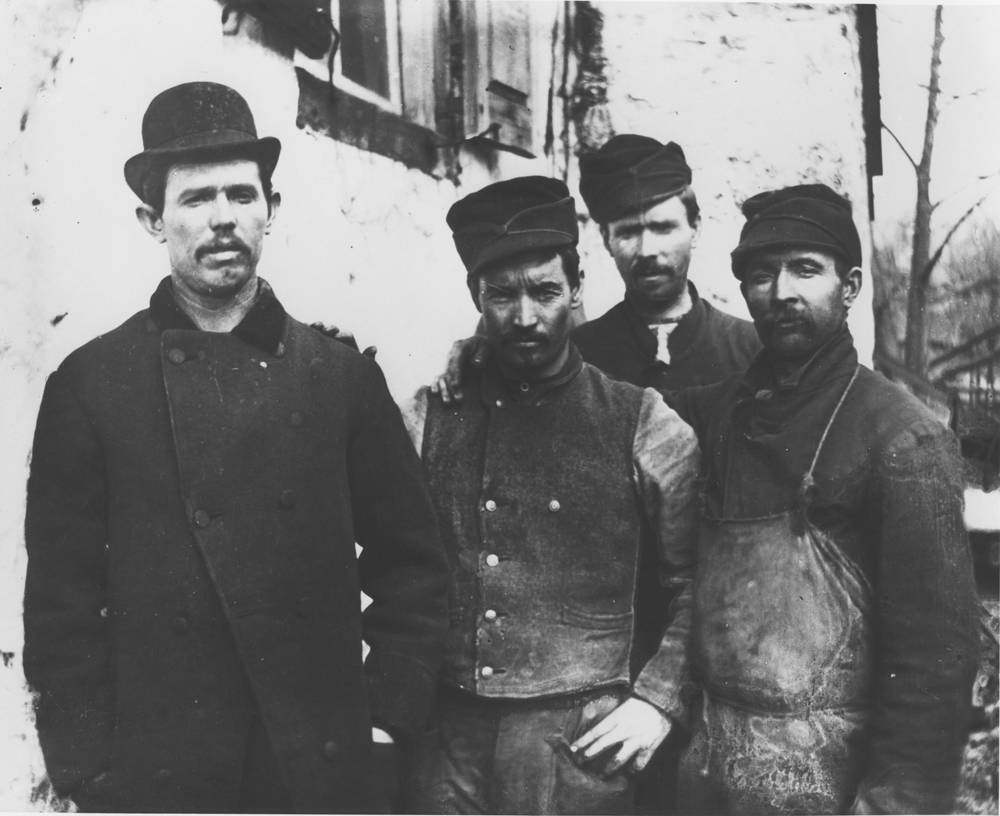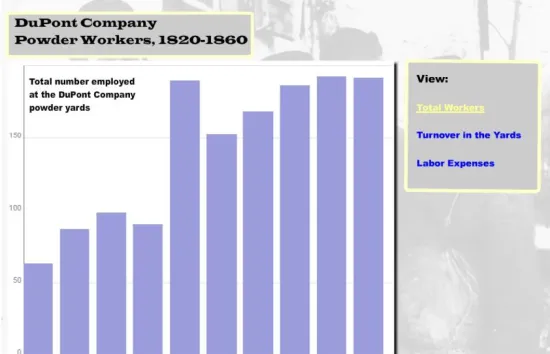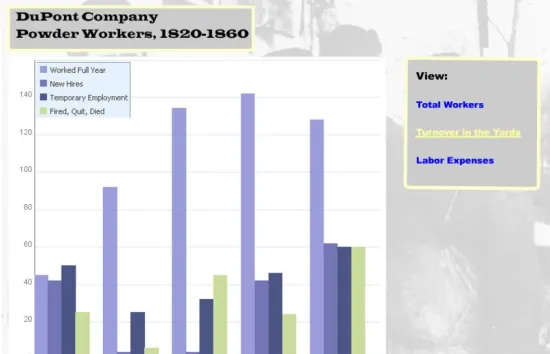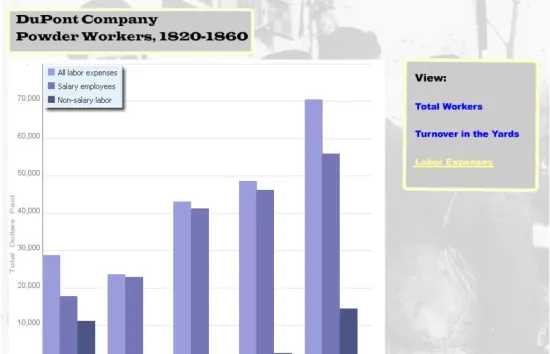The DuPont Company employed hundreds of people at their black powder yards along the Brandywine from 1802-1860. In addition to powdermen, DuPont hired carpenters, stone masons, machinists, blacksmiths, teamsters, bookkeepers, and boarding house operators.
Working at a gunpowder factory was very dangerous. Although approximately 100 people died in explosions from 1805 to 1860, the ample income provided by these jobs encouraged employees to risk their lives. Many DuPont employees spent their entire working lives in the powder yards, using their accumulated income to purchase land and provide for their families. Others used their saving to pursue opportunities elsewhere such as mining or farming in the western states.

DuPont created accounts with each employee into which the company deposited pay. Operatives had the option of either withdrawing their earnings or leaving the money on deposit. Monies left in these accounts could be put to such uses as paying boarding charges, taxes, doctor fees, or company store bills. The Company, in effect, acted as a bank for employees and even paid interest on sums over $100.
This section of the exhibit uses the primary sources in the Hagley Library to gain further understanding of the DuPont Company's workforce during the antebellum era. The specific primary sources used are the Petit Ledgers, which were used to keep track of employee accounts. These books provide detailed information on workers' wages and spending. Data from the Petit Ledgers allows researches to gain insight into operatives' economic lives.




